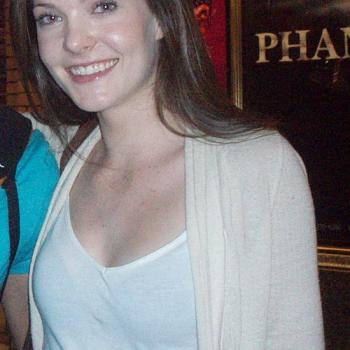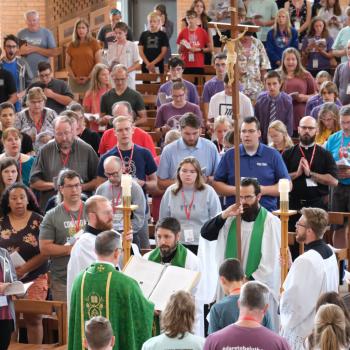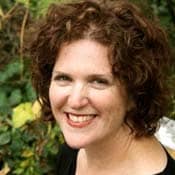Moving from one of the country's highest priced housing markets to a lower one gave my husband and I great hope six months ago. We would sell our house at a good price, easily pay our down payment, pay off all our bills that had accumulated while I was in school and living off one income in a high-priced housing market, and we would be relatively free and clear financially. It looked so promising and so possible. It was just one house offer away.
The house went on the market in May. From there, it took a price dip every few weeks. It looks like we will finally sell it for almost a hundred thousand dollars less than where we started.
Compared to many, we are very fortunate. We were not upside down in our mortgage and we will make it out with a little bit of money for the years of sweat equity and love we poured into that house. So many others don't. In no way do I want to complain. We have jobs, we have health insurance, and we have communities that love and support us. But the down payment for the new house is lost and the bills will continue to be paid off dollar by dollar for months to come.
What I didn't expect was the grief.
The grief of knowing those bills will hang over our heads for much longer. The grief of taking on more debt to make it through a few months with two mortgages. The grief of looking at the market and our country's deadlocked politics and feeling no hope that something will stimulate the economy or boost our house price for many months, possibly years, to come. The grief of feeling no safety net or margin in our personal finances, no chance of bailouts. The grief of still living paycheck to paycheck.
In my own grief, I recognize a similar grief in much of our country. In my new community, it is palpable. Just a few years ago, the housing market was soaring, jobs were being developed and the optimism filled new storefronts and new housing projects all around town. Now, housing prices are half of what they were, pipes come out of the ground as a reminder of houses that were supposed to be built, and storefronts close regularly. If you haven't lost your job or your home, you know someone, usually many people, often family members and close friends, who has.
In a country where almost all live above the world's average living standard, this grief is easy to dismiss because we know that so many others have it worse. But grief does not respond to rational comparisons with others. It only knows what it has lost. And millions of Americans have experienced loss in the last few years. My grief over the lost capital in our house is just a tiny particle of that collective grief.
I have very little to offer economists and politicians, but as a pastor, I sense the potential that spiritual communities can play in addressing the grief and modeling transformative community.
First of all, communities of faith can listen and offer tangible support through community. As people feel heard and understood, they are less likely to react out of anger. A lot of the negative and angry political environment in our government is grief that hasn't been processed. People are angry because of what they have lost, they don't feel heard or considered, and they just want someone to respond. It has been a great help to me throughout my grieving to hear from others who have gone through a similar circumstance, who affirm that it is difficult and who are willing to live with all the ups and downs of my journey to acceptance of a new reality.
I heard on the radio the other day that stock market analysts are beginning to measure positivity and negativity in Twitter feeds. If tweets are generally positive, then the market is predicted to go up. If they are negative, the market seems to go down. I'm not one to put all my stock in the power of positive thinking, but I think there is something powerful about the collective force of a community that is seeking to live a narrative of hope when they are surrounded by despair. What could be transformed if we did not set our hope in growing financial portfolios, but in the healing and reconciliation of our world? What difference would it make in how we view our world? Church communities have the potential to facilitate this kind of change as we respond to the Spirit who is always moving us towards reconciliation and wholeness.
Lastly, communities can model courageous, faith-filled giving in a climate of hoarding. As we enter into stewardship season in many congregations, it is easy to give into the prevalent fear and allow our conversation to be dominated by budget cuts and diminished programs. While a robust income is a great gift, what else may we be called to when that is not the reality? How do we tell stories of connection, transformation, and community—commodities that transcend a budget line?
Grief over the economy sits in our congregation and in our own souls every week. May we choose to be present to it and in that presence, to be open to its power to transform our souls and our world.
9/27/2011 4:00:00 AM





